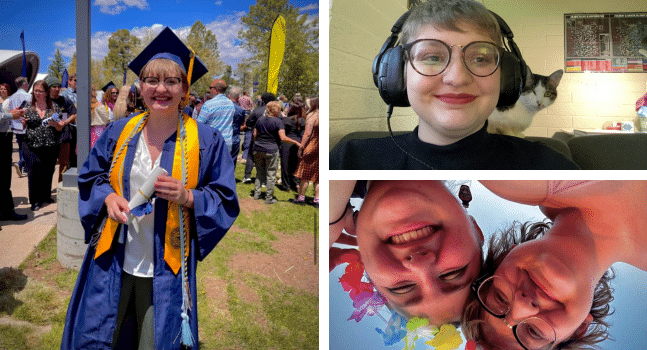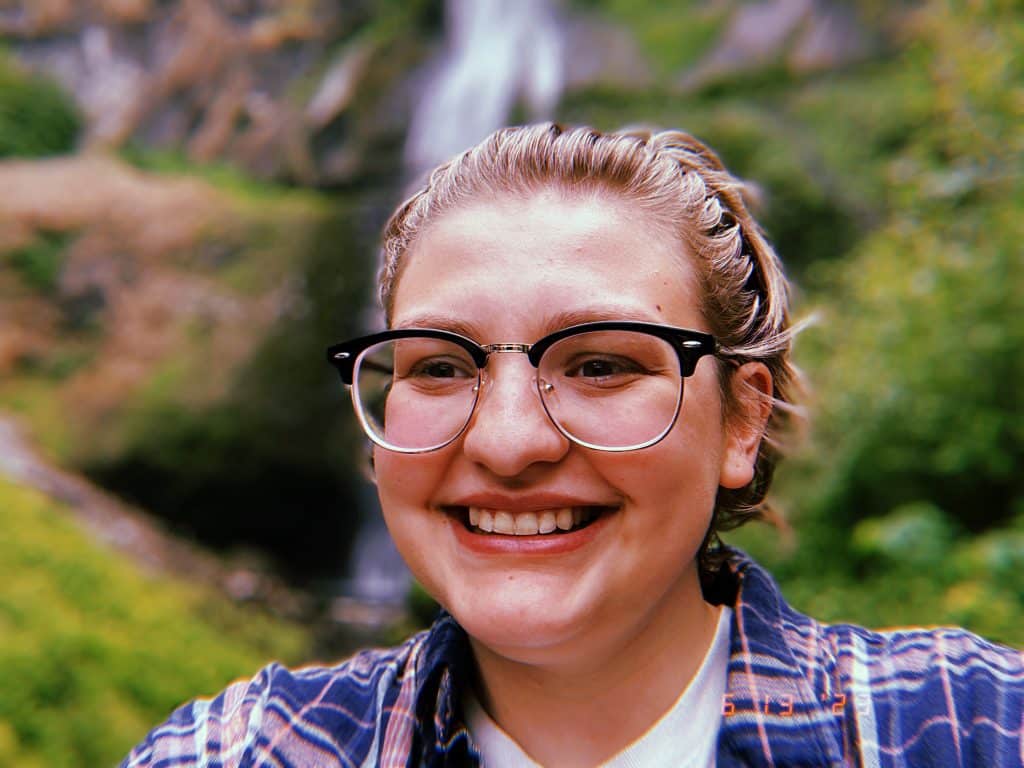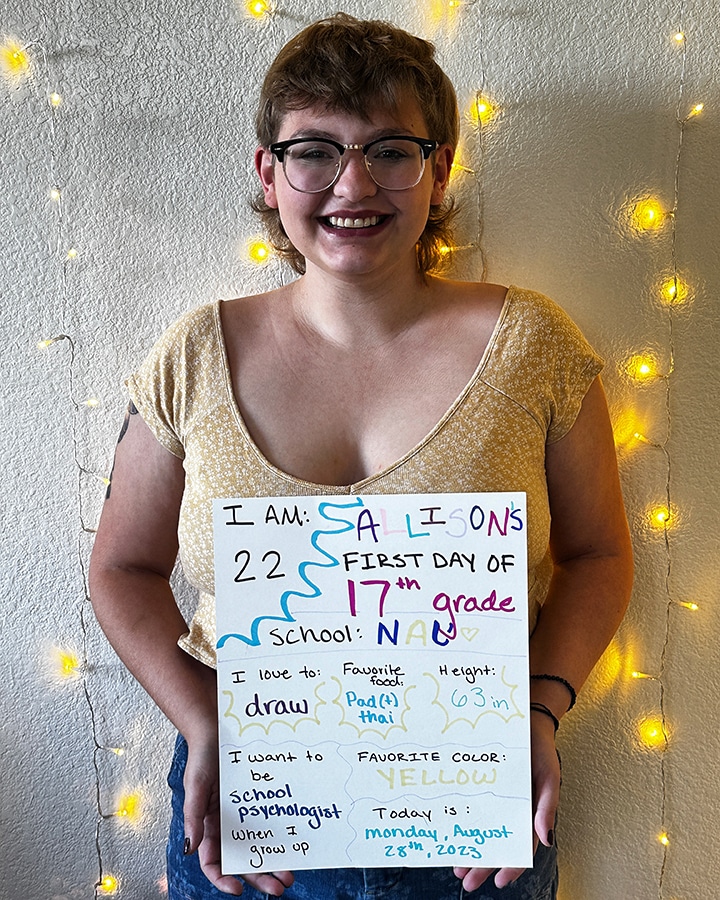When Allison Stenger talks to her cat, it often sounds like this: “The food in your bowl is the same as the food you’re begging for from the bag.”
Her cat never answers back—just stares at Stenger, her one eye full of the confidence only a cat can exude, and continues begging for the “fresh” food.
Stenger says she and Uno—named for the number of eyes she has; maybe the next cat will be “Dos,” Stenger joked—are both living their best disabled
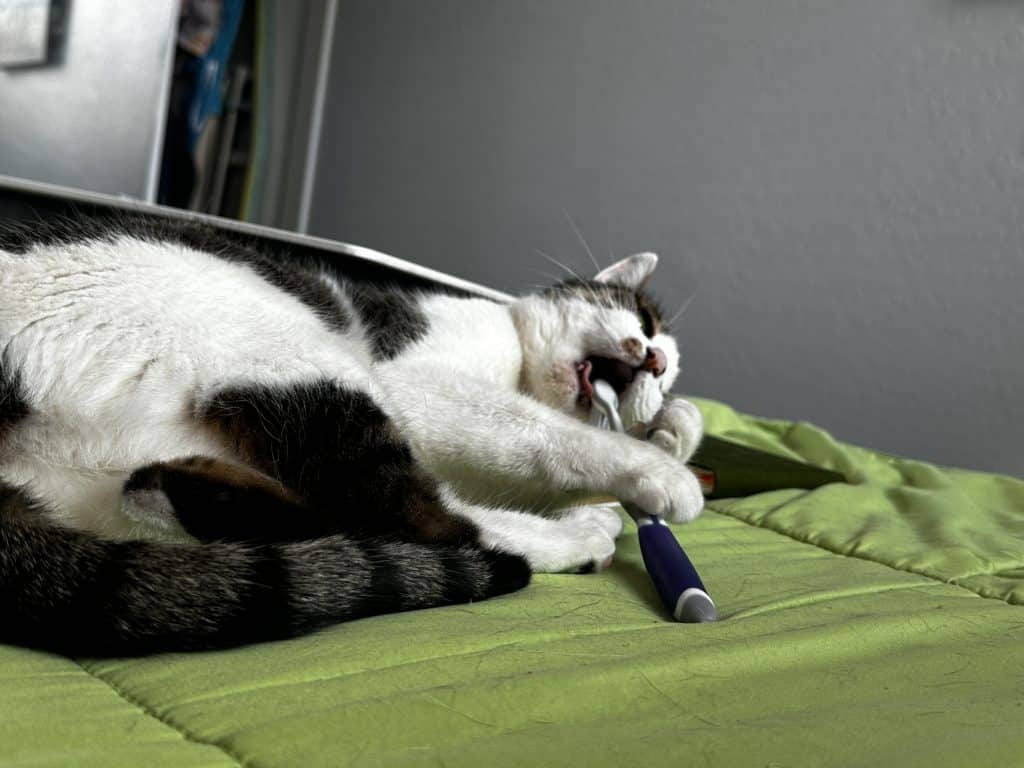
lives. Stenger is balancing a graduate program in educational psychology with managing obsessive compulsive disorder, generalized anxiety and moderate recurrent major depression while also doing disability advocacy. Uno, who lost an eye to an untreated infection that also caused brain damage, epilepsy and sensory issues, is a registered emotional support animal who likes to sleep, eat, follow Stenger to the bathroom and delight passersby with a wink from her windowsill.
She belongs at NAU, as does Stenger, who came to Flagstaff four years ago for her bachelor’s degree, fleeing the Phoenix heat with a full scholarship to study psychology but always with an eye toward the disability community. Stenger’s advocacy started long before she set foot in Flagstaff.
“Witnessing discrimination against people with disabilities and experiencing it myself has left a lasting impact,” she said. “My advocacy journey began with smaller initiatives, such as petitioning to make websites accessible for disabled students during high school when they were erroneously blocked as having ‘explicit content.’”
Since starting college, Stenger’s advocacy work has become a significant part of her life. She is taking disability studies classes as part of her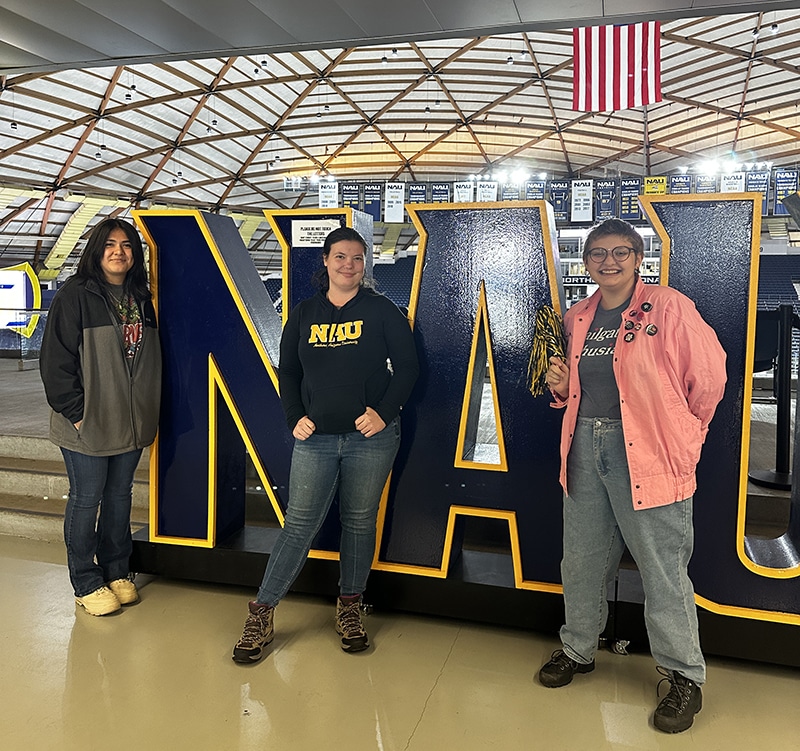
“As someone who is both disabled and part of the LGBTQ+ community, I confront not just one form of discrimination but the intersectionality of discrimination targeting my identity, journey and right to authentic living,” she said. “My goal is to promote and safeguard the rights of the disability community, enabling individuals with disabilities to participate fully in society with independence.”
Living with mental illness
Stenger’s major depression is in remission now, though she continues to receive treatment, including therapy and medication, for OCD and anxiety. She also has often had to grapple with the stigma associated with mental illness; it’s unfortunate, she said, but it is a reality for many people with disabilities. She noted that the NAU community provided crucial support for her health and continued success in and out of the classroom. Additionally, finding community and motivation in her disability studies classes has continued to help, including preparing for her future career as a school psychologist.
Advocacy for herself and others has been an important part of her life, and she walks a fine line, said John Schaffer, academic program coordinator for the Disability Studies minor in the Institute for Human Development—she understands the when, where and how to self-advocate. That’s hard to do, and it often discourages people from trying. Not Stenger.
“I have been really impressed with the way Alli is very open about her strengths; she comes across as confident in some areas, but she also opens up about her vulnerabilities and isn’t afraid to ask for help,” said Schaffer, who has had Stenger in class. “Self-advocating can be very difficult, especially for students with mental disabilities or non-apparent disabilities, but Alli is not only good at self-advocating for her needs, she also is very good at advocating for her classmates’ needs. She really wants everyone to be able to find the supports they need.”
For Stenger, that support includes a variety of people, programs and accommodations, including her four-legged, one-eyed emotional support. At the end of a long day, she curls up with Uno and a book or a pencil—she’s an avid reader and likes to draw. Stenger loves video games, and Uno likes to disrupt her while she plays.
If she had one takeaway, Stenger said, it would be that she can’t do the work herself, and neither can the disability community. The NAU community needs to work together to address physical and digital accessibility, social inclusion, increasing the availability of assistive technology and removing barriers in healthcare and unemployment, but those discussions cannot happen without the full and direct involvement of those people who will be affected.
“It is crucial to understand that disability can be both visible and invisible,” Stenger said. “People with disabilities encounter ableism, stigma and discrimination across all aspects of life, extending beyond education.”
